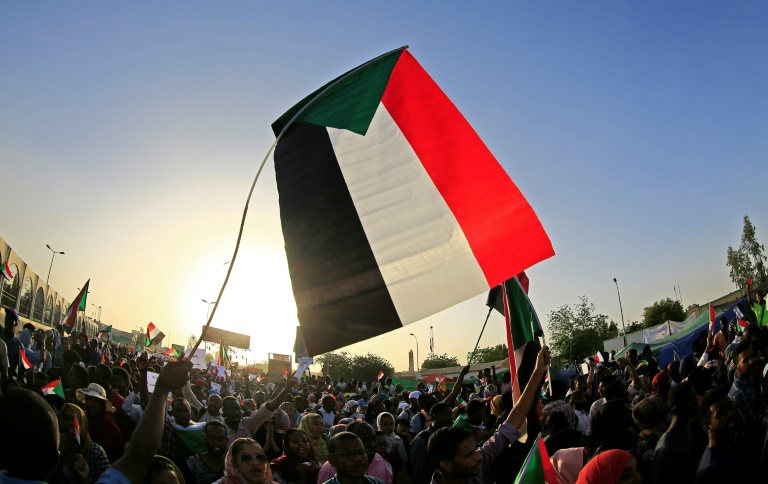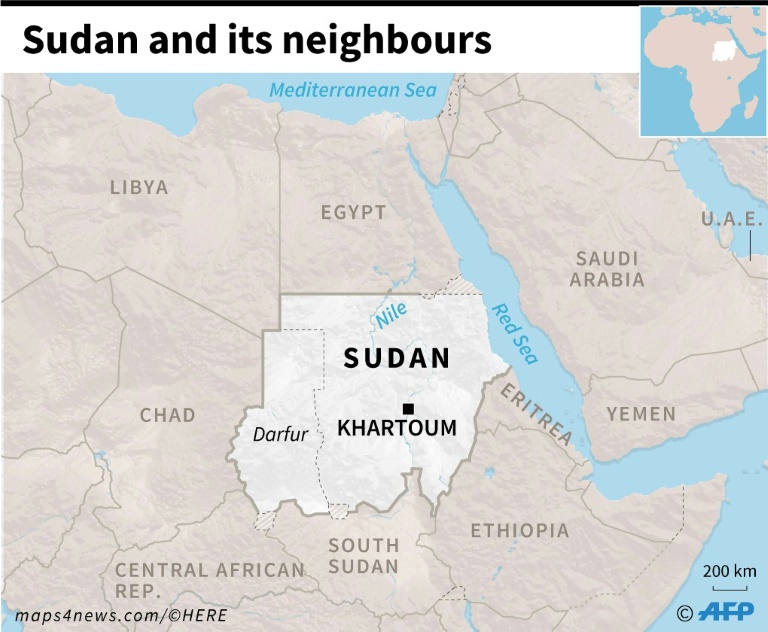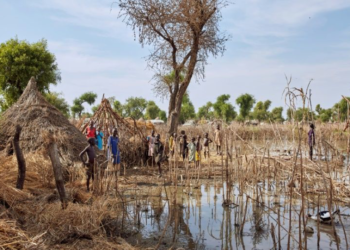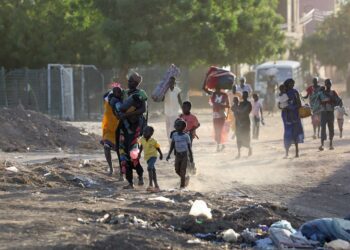After nearly 30 years in power, the military ousted Sudan’s President Omar al-Bashir on April 11. This military “coup” was in response to a series of protests over rising bread and fuel costs. Bashir initially declared a state of national emergency, dissolved the government, and attempted to reshuffle his cabinet, but these maneuvers did little to appease the protesters.
By April 12, the head of the transitional military council Awan Ibn Auf announced his resignation and that the army’s inspector-general, General Abdel Fattah Abdelrahman Burhan would be put in his place. Burhan is a promising choice. He is the only military personnel that had not been implicated for war crimes or is wanted by the International Criminal Court.
Amid these positive developments, Sudanese are hopeful for a new era of democracy and civilian rule. But what are the chances of the country transitioning to democracy after decades of dictatorship? A look at authoritarian transitions – both successful and unsuccessful – in Egypt, Libya, Syria, Tunisia, and Yemen may shed light on what is likely to happen in Sudan over the next years.
Sudan’s Revolutionary Past
Though the recent events in Sudan are historic, this is not Sudan’s first revolution. Since gaining independence in 1956, Sudan experienced two prior revolutions in 1964 and 1985. Both of them were followed by instability and then a return to authoritarianism. This relapse into authoritarianism is fairly common.
From 1950 to 2012, only 20 percent of authoritarian breakdowns have led to democracy. However, the track record for revolutions is usually better. When leaders are toppled by a revolution, democracy follows almost 45 percent of the time. In contrast, when leaders are ousted in a coup, democracy only follows 10 percent of the time.
Role of Security Forces

The security apparatus is important to the success of any revolution. The security forces have two options during protests: fire on civilians or side with them. In contrast to Syria where the military remained loyal to President Bashar al-Assad, the Sudanese army was initially split with some troops using force against the protesters and others siding with civilians.
This is a departure from how the Sudanese military responded in late 2013 when it allegedly killed 200 protesters. The critical decision to not open fire on demonstrators was important in building the confidence of other people to take to the streets.
The military in authoritarian regimes also has a central role to play in the democratic transition. The army has to decide whether it is willing to accept civilian rule and stay out of politics or remain in power either directly or indirectly.
In contrast to the Egyptian military which eventually sided with the protesters and ousted Hosni Mubarak only to never truly leave power, Sudan’s army is not quite as powerful. However, the Sudanese military has been historically linked to Bashir’s administration and has benefited from corruption.
The military, police, and National Intelligence and Security Services (NISS) also have had their own private businesses, vested interests in state-owned enterprises, and enjoyed favorable treatment from the government. Sudan’s national budget was mostly spent on unspecified national security priorities, with reports that billions had been stolen from the budget that was not accounted for. Convincing these powerful actors to cede power may be challenging.
Preventing the army, the NISS, and paramilitaries from dissolving into conflict will also be critical. Bashir had attempted to coup-proof the regime by creating a web of complex political-security alliances. With Bashir out of power, a power struggle about how to handle the revolution could emerge between these groups. The security services in Yemen and Libya fell apart and became embroiled in conflict. Sudan faces this risk if these rivalries within the security apparatus cannot be managed.
On the plus side, the military is being guided by Burhan, who at the moment appears to be listening to the demands of the protesters and engages with them in talks to release political prisoners. The military is supposedly restructuring its army chief of staff and deputy chief of staff. But protesters are asking for a joint military-civil council, a demand which has not been heeded.
In Tunisia, the military was small but professionalized and preferred to mostly stay out of politics and allow civilians to guide the transition and take charge. Convincing the military to go back to the barracks will be critical to the transition.
Role of Opposition
The protests that have unfolded over the past four months have been festering for some time now. The loss of South Sudan and 75 percent of the country’s oil has led to a huge rise in inflation, upwards of 70 percent. Over 7 million Sudanese are in dire need of humanitarian assistance, while 5 million people face food insecurity. Almost all Sudanese communities have suffered from historical injustices.
The opposition movement, led by the Sudanese Professional Association (SPA), has capitalized on these long-held grievances. The SPA is an outlawed umbrella group of unions, which has been mostly led by members that have lived in exile. The association formed initially in 2012 by university lecturers but expanded in 2014 to include other professionals such as doctors and teachers. Its main goal has been to advocate for a living wage for families.
The Sudanese Association of Professionals called for country-wide sit-ins today.
There has been a huge response from professionals – images are pouring in of sit-ins by doctors, lawyers, educators and civil society groups in Khartoum, Omdurman and Darfur and Kassala states.
— Yousra Elbagir (@YousraElbagir) February 5, 2019
Thus far this opposition movement has been inclusive and united in calling for regime change. In the past, the Sudanese opposition has lacked guidance. Though there are over 100 political parties in the country, the SPA was the only one organized enough to call for protests in Khartoum. The opposition needs to remain united and inclusive in the transition to democracy to stave off attempts by the military to usurp the revolution and refuse to fully cede power to civilians.
The fact that the protests have remained peaceful also bodes well for Sudan In several studies that have looked at hundreds of nonviolent and violent mass movements for regime change, anti-occupation, and secession over the past 60 years, it was found that non-violent revolutionary movements are more likely to succeed than violent ones.
The SPA has encouraged a peaceful strategy, such as motivating Sudanese to sit-in outside the military headquarters. While Libya, Syria, and Yemen’s revolutions have been plagued by violence and civil war, Sudan at the moment is committed to using peaceful methods of resistance.
The leaders of the opposition movement also have to be committed to democracy.
The transition in Tunisia was aided by the fact that the politicians that arose in the transition were staunch defenders of human rights, like long-time human rights activist Moncef Marzouki who later became the country’s president. Tunisia’s primary Islamic opposition party, the Ennahda Party, was willing to compromise with secularists and offered some huge concessions to achieve a settlement.
In Egypt, the Muslim Brotherhood was the most powerful organization of the opposition. In contrast to Ennahda, the Muslim Brotherhood was inflexible with secularists and preferred to violate human rights and democratic practices rather than to uphold them.
Sudan needs an opposition that is ready to compromise in order to deal with a complex set of identities and values.
Role of Women
Women also have an important role to play in democratic transitions and peace processes. Countries that are able to involve women in these developments have a much better chance of success.
Taken by me@lana_hago#8aprile pic.twitter.com/o7pDUsQg84
— Lana H. Haroun (@lana_hago) April 8, 2019
In Tunisia, women played a significant role in the safeguarding of women’s rights in the constitution and negotiating the terms of the transition. In Egypt, women were de-humanized with mass cases of sexual assault taking place just in Tahrir Square, the site of the protests.
Women have been notably prominent in the case of Sudan. Despite women in Sudan having faced decades of exploitation and repression, women have placed themselves at the forefront with more than 70 percent of the protesters on the street being women. Women have been championed for their strength during the demonstrations and have gained international attention.
Looking Ahead
While there is some room for optimism, the legacy of almost 30 years of personalist dictatorship and corruption is often difficult for countries to overcome. The military, opposition, and women play a significant role in deciding Sudan’s fate.
For democratic transition to succeed, the military has to be willing to exit and allow civilians to take the lead. The opposition is united for the moment, but eventually, it will have to form into cohesive political parties with clear ideological platforms that don’t center around sectarian or ethnic identities. The public will also need to be patient as building democratic institutions takes time.
Democracy doesn’t happen overnight. Finally, encouraging a vibrant civil society that is inclusive and committed to a peaceful transition will be critical to the success of Sudan’s revolution.
Disclaimer: The views and opinions expressed here are those of the author and do not necessarily reflect the editorial position of The Globe Post.




















